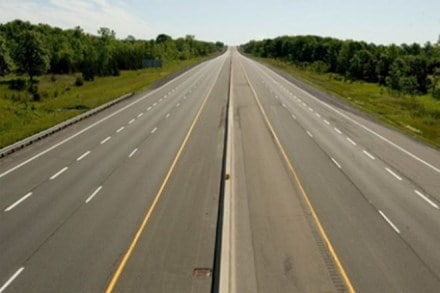Even before the onset of the Covid-19 crisis, fiscal 2019-20 had been an odd year for highway construction in India, with the pace of work slowing down for the first time since the Narendra Modi government assumed power in 2014, largely due to the general elections in May and a liquidity crunch. The outbreak of the pandemic has only made matters worse. Besides the stoppage of work that lockdowns to contain the disease have caused, there are apprehensions of labour unavailability hitting work in the aftermath of the crisis. To put it into perspective, nearly 4,076 man-days are required for the construction of one km of highways.
“Labour availability is going to remain a challenge until the Covid-19 issue subsides. This will impact construction work,” says ICRA’s vice president Rajeshwar Burla. Apart from uncertainty over the end of the crisis, sector experts fear that migrant workers who have moved to their native places may choose to stay there, returning only if they don’t find suitable jobs back home.
In fact, highway concessionaires started facing a labour issue before the Centre announced a 21-day lockdown beginning March 25. The imposition of a lockdown across 75 districts prior to the national lockdown resulted in concessionaires having to stop work on many stretches. Any extension of the lockdown would thus delay work being resumed and the government’s ambitious agenda for highway construction getting back on track.
Delay in project completion owing to the lockdown and its aftermath is also likely to impact the turnover of contractors and, as a result, their profitability. Further, shortage of staff at government departments is expected to delay the certification of work and processing of payments, adding to the liquidity crunch faced by contractors and hindering work.
A source in the National Highways Authority of India (NHAI) tells FE concessionaires would be given extra time to complete work if they showed valid reasons for delay on their part. They would also not be levied any penalty in the wake of the same. As of December 31, 2019, around 1,440 highway projects totaling 49,470 km in length were under construction across India.
The challenge posed by Covid-19 was preceded by months that saw the pace of work decelerating in comparison to FY19. During the April-February period of 2019-20, 8,785 km of highways were built at a rate of 26.2 km/day, compared with 8,974 km built at a rate of 27.19 km/day in the corresponding period of the preceding fiscal. As for March, not much work was done in the last month of the fiscal, sources say.
Significantly, March usually witnesses the pace of work touching a high. For instance, after a rate of 27.19 km/day in the first eleven months, the agencies managed a record 29.7 km/day for FY19, reflecting the heightened activity in the last month of the fiscal.
The relative lull in construction activity in FY20 began after the general elections were announced last year. The Election Commission’s announcement saw the government being prohibited from laying foundation stones for projects or making promises for construction of roads, impacting the momentum in work. Subsequently, the sector was hit by a huge liquidity crisis. The extent of the crisis can be gauged from the fact that in November, the Ministry of Road Transport and Highways (MoRTH) had to yield to developers’ demand for working capital advance between two payment milestones for both Hybrid Annuity Model (HAM) and Engineering, Procurement and Construction (EPC) projects.
